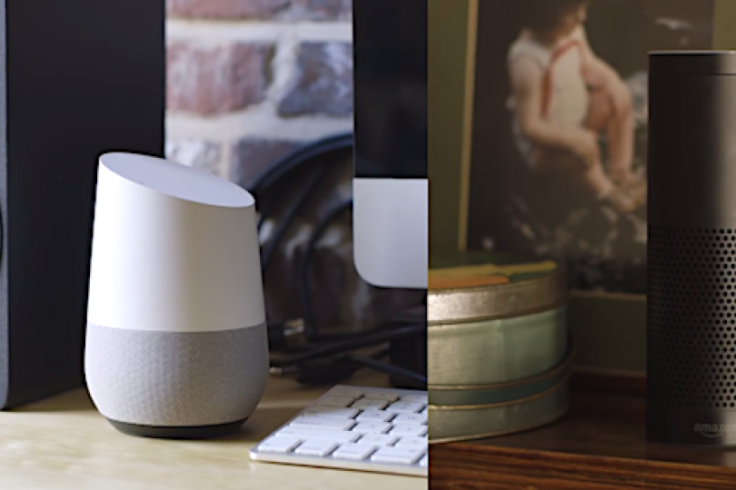Smart Home Speaker Market Seeing Growth, But Consumers Want Better Assistants

Voice speakers have been a growing market for companies like Amazon and Google. And thanks to a survey from Adobe Analytics Cloud, it's possible to see where the market should be going.
Among the survey’s key takeaways, the Amazon Echo series and the Google Home speaker saw its biggest jump in U.S. sales during the past holiday season. Adobe Analytics Cloud said three out of four speakers in the market’s current install base were sold during this time.
Read: Amazon Echo Show Reviews: New Alexa Speaker Benefits From Screen
Smart home support has also played a role in the growth of the virtual speaker market. Automating repetitive tasks, like lights and cameras, is among the most common uses of the speaker, using IFTTT —if this, then that — protocols. The Adobe’s survey indicated there are around 778,000 active connections to home speakers via IFTTT, which grew by a factor of 6.4 times in 2016 and are slated to grow an additional 4.3 times in 2017.
On the consumer end, these trends are slightly more muted. While 51 percent of respondents reported using voice instead of a keyboard to interact with devices and the internet in periods varying from daily to weekly, 49 percent of polled users said they never have. Within this same group of respondents, 37 percent of those polled said they found assistant performance either not good or terrible.
Both points line up with many of the current upsides and downsides of virtual assistants like Amazon’s Alexa, Google Assistant and Apple’s Siri. While these assistants have gotten far better at handling day-to-day requests like playing music or getting the weather, they can still periodically be thrown off by problems involving phraseology for specific requests. In other cases, assistants can lack the third-party developer support and integration needed to tackle requests more complicated than getting directions or finding appointment times.
Read: Amazon Echo Vs. Apple HomePod: Which Device Do Consumers Want?
Adobe Marketing Cloud’s social media analysis of the voice speaker market also gives some context to what attracts shoppers.
As Adobe’s report notes, Samsung’s own Bixby assistant saw a brief bump in social media mentions during its March announcement, but buzz has largely tapered off. In part, it could be due to Samsung’s delayed rollout for its proprietary voice assistant. Alexa, Microsoft’s Cortana and Google Assistant have had an on-and-off role in social media mentions, but Apple’s Siri still leads the market thanks to its sizable install base. Similarly, product releases like the Apple HomePod and Google Home produced a spike in social media mentions, but Adobe found the Cortana-powered Harmon Kardon Invoke produced little traction on social media.
© Copyright IBTimes 2025. All rights reserved.



















